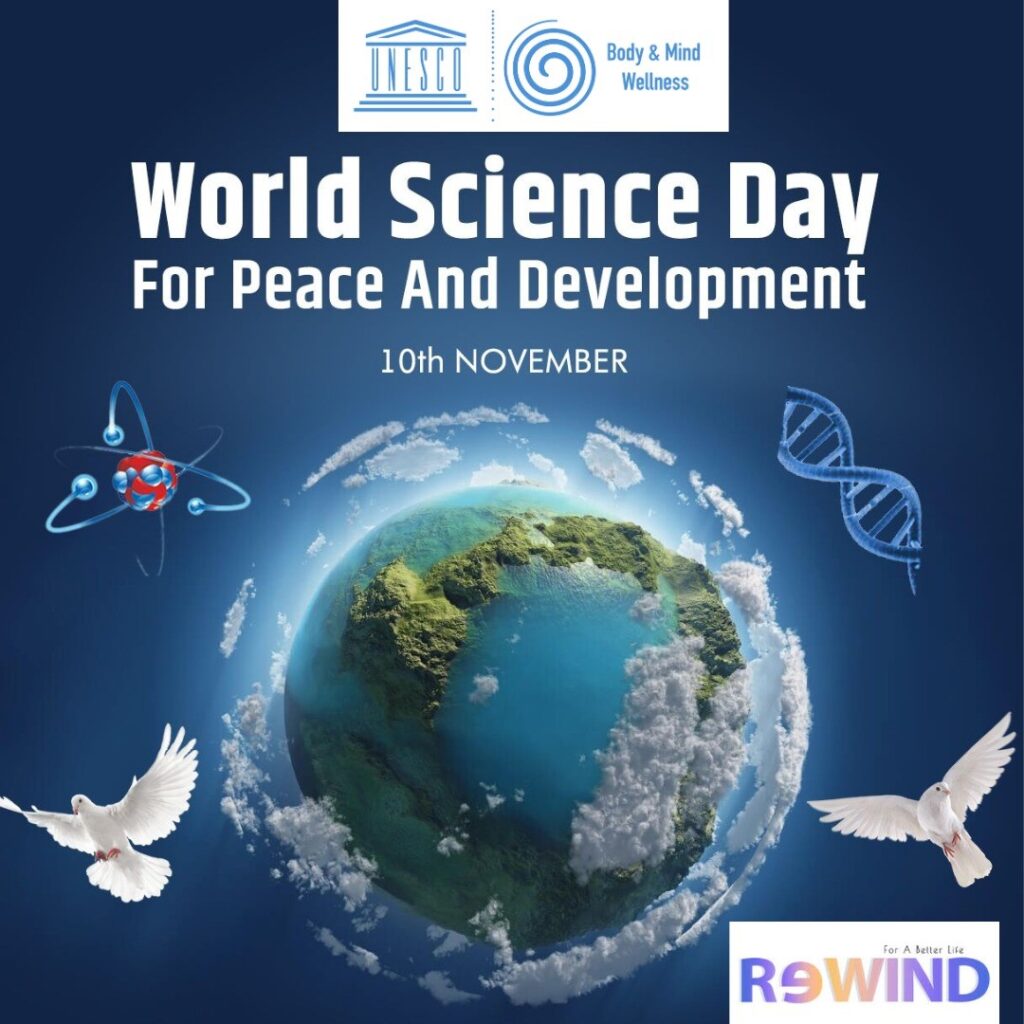
The Origin
World Science Day for Peace and Development is celebrated annually on November 10th to emphasize the indispensable role of science in promoting peace, addressing global challenges, and fostering sustainable development. Established by UNESCO in 2001, this day aims to raise awareness about the importance of scientific knowledge in resolving societal issues. As the world faces mounting challenges such as climate change, pandemics, and dwindling natural resources, the integration of science into political discourse and peacebuilding initiatives is more critical than ever. By fostering innovation and collaboration, science holds the key to addressing these challenges in ways that promote global stability and well-being.
The Role of Science in Promoting Peace
Science plays a transformative role in advancing peace by tackling the root causes of conflict, such as resource scarcity, environmental degradation, and public health crises. By driving technological progress and encouraging scientific research, it provides solutions that help prevent, mitigate, or resolve conflicts. For instance, agricultural advancements can alleviate hunger and food insecurity, reducing the likelihood of disputes over limited resources. Similarly, breakthroughs in renewable energy, such as solar and wind power, lessen dependence on non renewable resources like oil, thereby reducing the potential for conflict over energy supplies. Furthermore, the concept of scientific diplomacy—where countries engage their scientific experts in international dialogue—is increasingly recognized as an effective strategy for promoting global peace. High-profile collaborative projects like NASA’s International Space Station and CERN’s particle physics experiments are examples of how science transcends political divisions and fosters international cooperation, even in the face of geopolitical tensions.
UNESCO BMW’s Involvement
UNESCO BMW emphasizes the importance of mental and emotional wellness, crucial for fostering inner peace and resilience, especially in the Global South. Through workshops and programs that promote knowledge sharing and collaboration, we aim to uplift communities and spread positivity. Our focus extends beyond individual well-being to socio-economic progress, environmental sustainability, and gender equality—key components in achieving the Sustainable Development Goals (SDGs). With the launch of the ReWIND initiative, we aim to improve mental well-being and raise spirits in celebration of this day.
UNESCO BMW’s Vision
Our mission aligns with the broader goals of World Science Day by centering on three primary objectives: nurturing inner ecosystems through mental and emotional health, fostering creativity through engagement with arts and crafts, and promoting inner peace at a global scale. These initiatives are designed to engage individuals of all ages, particularly the youth, in holistic well-being practices that contribute to global peace. By encouraging creative expression, environmental stewardship, and personal growth, UNESCO BMW aims to inspire a new generation of leaders committed to advancing peace, sustainability, and equality across the world.
By: Seemab Arif
Sources:
- UNESCO. (2023). International Day of Science for Peace and Development.
- Royal Society. (2021). Science diplomacy: The role of science in addressing global challenges.
- Poore, J., & Nemecek, T. (2018). “Reducing food’s environmental impacts through producers and consumers.” Science, 360(6392), 987-992.
- United Nations. (2022). The Sustainable Development Goals Report – United Nations Publications.
- https://www.un.org/en/academic-impact/world-science-day-peace-and-development
- https://unescobmw.org/
- https://unescobmw.org/about-us/our-mission/